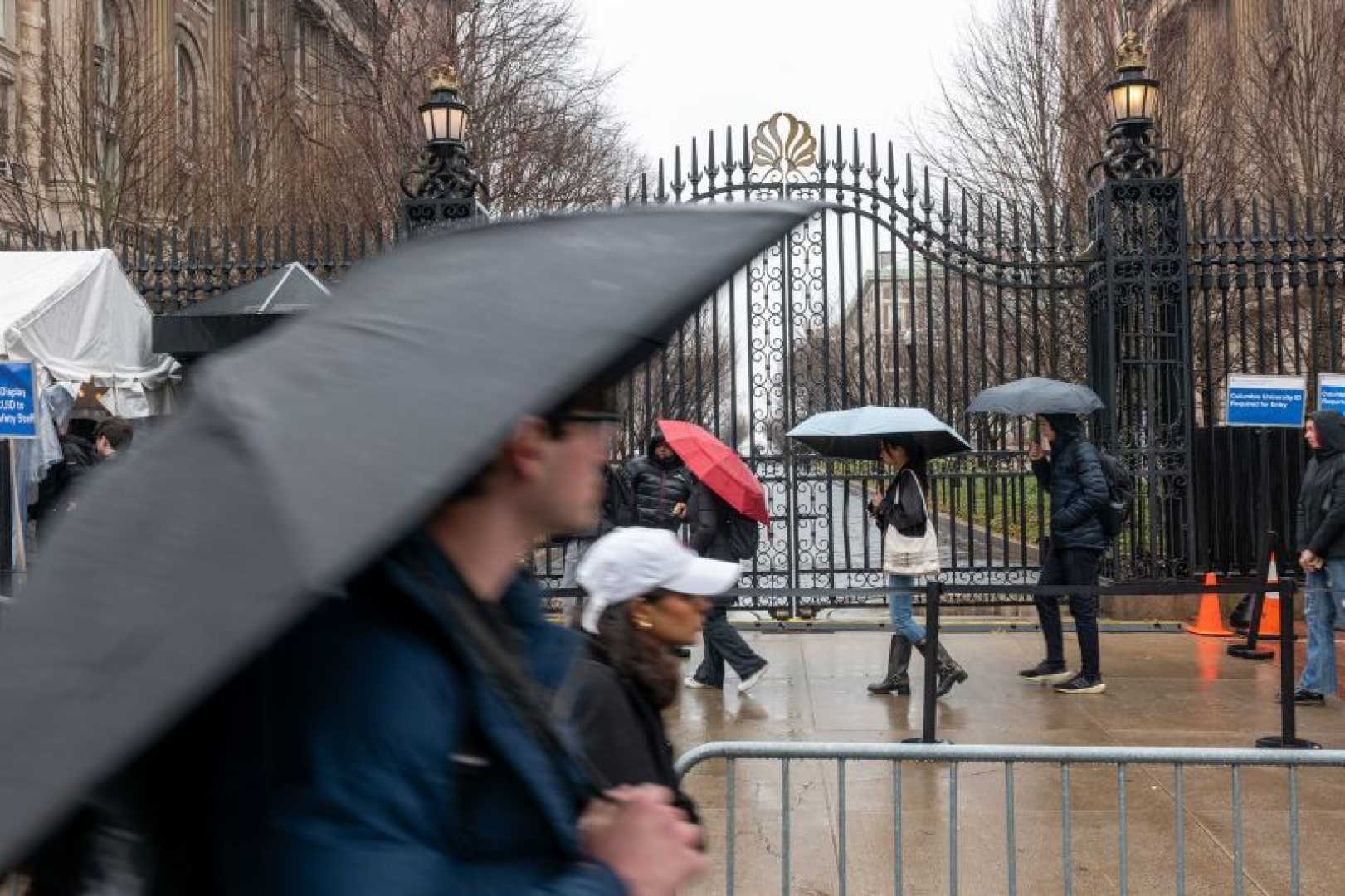Education
Yale Professor Leaves for Toronto Amid Trump’s Higher Education Policies

NEW HAVEN, Conn. — Yale philosophy professor Jason Stanley announced his departure to the University of Toronto, citing the Trump administration’s contentious relationship with higher education as a primary factor for his decision. During a phone interview with CNN on Thursday, Stanley encountered students who expressed concern over his move. “I love Yale,” he assured them, before elaborating, “But Marci, Tim, and I, we’re gonna go defend democracy somewhere else.”
Stanley, a noted expert on social and political philosophy, triggered a significant reaction within academic circles when he revealed his plans. He reflected on the limitations imposed on professors regarding their political commentary, particularly for those not holding U.S. citizenship. “Suddenly if you’re not a citizen of the United States, you can’t comment on politics if you’re a professor? That’s crazy. That’s not a free society,” he said.
His decision, made public last Friday, was intensified by Columbia University’s recent policy changes amid threats from the Trump administration to withdraw federal funding. The administration has positioned itself against institutions accused of undermining American values, especially in relation to antisemitism and immigration policies. Columbia became the first university to face potential funding cuts as a result of President Trump’s accusations of bias against Jewish students during the ongoing Israel–Hamas conflict.
Stanley described the current academic environment as “humiliating,” asserting, “They’re humiliating the universities, and I don’t see the universities standing up to it.” Alongside Stanley in their exodus to Toronto are Yale’s history professors Marci Shore and Timothy Snyder, who aim to champion democratic ideals and challenge fascism in a new academic setting.
Shore explained her motivations during her own interview with CNN, expressing the necessity of acting against perceived threats to academic freedom. “It’s not that I think everyone has put their head down and gotten in line,” she stated. “But I think a lot of people have, and I fear that university administrations will, because institutions naturally have an incentive to act in the interest of self-preservation.”
While Yale has not faced direct repercussions from the Trump administration, surrounding circumstances have raised concerns. Recently, the administration paused $400 million in federal funding to Columbia, citing its failure to safeguard against antisemitic behavior.
Columbia responded with significant policy modifications, including new rules on face coverings during protests and revisiting curricula related to the Middle East. Additionally, the Trump administration has initiated measures to combat antisemitic rhetoric on college campuses, leading to scrutiny of universities’ responses to alleged discrimination against Jewish students.
Keith Whittington, a Yale professor and cofounder of the Academic Freedom Alliance, warned of the potential ramifications of leading educators leaving the U.S. for more favorable conditions. “If you lose your best people who decide to go to other countries, that’s going to have long-term consequences,” he articulated.
In a statement, Yale University affirmed its commitment to its faculty and recognized the diversity of career decisions. “Faculty members make decisions about their careers for a variety of reasons, and the university respects all such decisions,” the institution stated.
Despite the concerns that prompted his move, Stanley insisted, “It’s not fear, I’m not afraid.” He emphasized his focus on advocating for democracy rather than contesting against the institutions he values. “I’ll be in a much better position to fight bullies,” he concluded.












